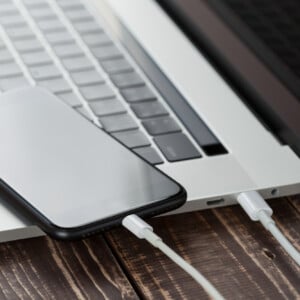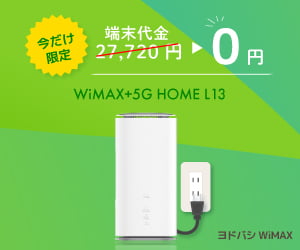Master Bluetooth Tethering! How to Connect Android/iPhone to a PC
【この記事にはPRを含む場合があります】

No Wi-Fi? No problem! You can share your smartphone’s internet connection with your computer or tablet.
When you want to use your laptop or tablet outside and can’t get a Wi-Fi signal, “Bluetooth tethering” can help. This feature lets you share your smartphone’s internet connection with other devices using Bluetooth. It’s great for people who travel a lot for work or for people who work in places like cafes, trains, hotels, and similar places.
This article explains how to connect via Bluetooth tethering on both Android and iPhone. We also provide troubleshooting tips and precautions for when you can’t connect properly, so be sure to use this guide to learn how to master Bluetooth tethering.

- What is Bluetooth tethering? How does it differ from other tethering methods?
- How to Use Bluetooth Tethering
- How to Operate a PC When Using Bluetooth Tethering
- Troubleshooting When Bluetooth Tethering Doesn’t Work
- Precautions for Bluetooth Tethering
- Battery Consumption
- Mobile Data Usage Is Also Consumed
- Communication Speed Is Not Fast
- Security Measures
- Use Bluetooth Tethering!
What is Bluetooth tethering? How does it differ from other tethering methods?
Bluetooth tethering lets you share your smartphone’s internet connection with other devices using Bluetooth. You can use your smartphone’s internet connection on paired devices like laptops and tablets through Bluetooth.
Comparison of Tethering Types [Bluetooth / USB / Wi-Fi]
In addition to Bluetooth tethering, there are also USB tethering and Wi-Fi tethering. Let’s compare the advantages and disadvantages of each.
| Tethering Method | Advantages | Disadvantages |
| USB Tethering | Stable connection Low battery consumption Can use while charging the smartphone | Wired connection (cable required) |
| Wi-Fi Tethering | Can connect multiple devices simultaneously Relatively fast communication speed | High battery consumption Security risks Possible radio interference |
| Bluetooth Tethering | Power saving (low battery consumption) Easy to set up | Slow communication speed Can connect only one device |
Wired USB tethering has the advantage of a stable connection because the smartphone and PC are connected directly with a cable. However, you have to carry a cable with you specifically for tethering.
Wi-Fi tethering, like Bluetooth tethering, is a wireless connection, but it uses up a lot of battery power. On the other hand, it’s great at communicating quickly and connecting to many devices.
Bluetooth tethering, the focus of this article, has slower communication speeds compared to Wi-Fi tethering, but it’s more energy-efficient. It allows for a long-lasting and stable wireless connection while reducing battery consumption on both the smartphone and PC.
How to Use Bluetooth Tethering

The method for Bluetooth tethering differs depending on your smartphone’s OS.
Bluetooth Tethering on Android Devices
- Open the Settings app and tap “Network & Internet.” Depending on your device, this may be under “Connections & Sharing”.
- Tap “Hotspot & Tethering”.
- Find the “Bluetooth Tethering” option and switch it on.
- On the device you want to connect (such as a PC), open the Bluetooth settings screen, select the name of your Android device, and pair them.
Once pairing is complete, you will be able to connect to the internet from your PC.
Bluetooth Tethering on iPhone
- Open the Settings app and tap “Personal Hotspot”.
- Turn on “Allow Others to Join”.
- Tap “Turn on Wi-Fi and Bluetooth”.
- On the device you want to connect (such as a PC), open the Bluetooth settings screen, select “iPhone”, and pair them.
How to Operate a PC When Using Bluetooth Tethering
Let’s also look at how to set up the connection on the PC side when using Bluetooth tethering.
When Tethering with Windows via Bluetooth
- Open Settings and click “Bluetooth & devices”.
- Click “Add device”.
- Select “Bluetooth”, click the name of the smartphone you want to connect, then click “Connect” and pair the devices.
- Once pairing is complete, click “Other devices,” then click “Join” for the Personal Area Network (PAN).
- Select “Access Point” and click “Connect” to establish the connection.

When Tethering with Mac via Bluetooth
- Open “System Preferences” from the Apple menu and select “Bluetooth”.
- Turn on Bluetooth tethering on your smartphone, and when your smartphone’s name appears in the Mac’s Bluetooth settings screen, click it to pair.
- Once pairing is complete, click the Bluetooth icon in the menu bar, select your smartphone’s name, and connect.
Troubleshooting When Bluetooth Tethering Doesn’t Work
If Bluetooth tethering isn’t working properly, check the following list of possible causes and solutions.
Checking for Issues on the Smartphone Side
- Bluetooth is turned off: Check your smartphone’s Bluetooth settings. Bluetooth should be turned on.
- Tethering settings are turned off: Make sure that the tethering (personal hotspot) setting is turned on.
- The pairing hasn’t been completed. Make sure your smartphone and device are properly paired. If that doesn’t work, try unpairing and then re-pairing the devices.
- Restart your smartphone: Restarting your smartphone can sometimes solve temporary issues.
- The smartphone operating system is outdated. Updating the operating system (OS) may solve problems with Bluetooth tethering.
Checking for Issues on the PC Side
- Restart your PC: If you’re having a temporary issue, try restarting your PC.
- Update your PC’s Bluetooth driver: If the Bluetooth driver is outdated, Bluetooth tethering may not work. Update the driver to the latest version from Device Manager (for Windows).
- You can connect this device to other Bluetooth devices. If you are connected to other Bluetooth devices, they may cause problems with Bluetooth tethering. Try disconnecting from other devices for a while.
- Security software or firewall: Your security software or firewalls might be blocking Bluetooth tethering. Try turning them off for a while to see if that fixes the problem.

Precautions for Bluetooth Tethering
Here are some important things to remember when using Bluetooth tethering:
Battery Consumption
Bluetooth tethering uses less energy than Wi-Fi tethering, but it still uses your smartphone’s battery. It’s best to fully charge your phone before using it with Tethering.
Also, if you are using your phone while camping or somewhere without electricity, it’s a good idea to have a portable battery ready in case your phone runs out of charge. If your phone’s battery is low, it might go into power-saving mode. This can cause problems when you’re trying to connect to other devices.
Mobile Data Usage Is Also Consumed
Bluetooth tethering uses your smartphone’s mobile data. Don’t go over your monthly data limit.
This is especially important for operations that use a lot of data, such as downloading apps or software on your PC. It is recommended that you do this on a Wi-Fi network. If you plan to use tethering frequently, consider switching to a plan with a higher data allowance in advance.
Communication Speed Is Not Fast
Bluetooth communication is slower than other tethering methods. Choose Wi-Fi or USB tethering based on how you plan to use it.
For example, Bluetooth tethering is good for simple tasks like browsing the web or checking emails. However, for activities that require high-speed communication, such as watching high-definition videos or playing online games, Wi-Fi or USB tethering is recommended.
Security Measures
Bluetooth tethering is more secure than Wi-Fi tethering, but there is still a risk of attacks. So, it’s best to connect only to your own devices and turn off Bluetooth when you’re not using the internet.
It’s also a good idea to take other security steps, like updating your devices and setting a strong passcode.

Use Bluetooth Tethering!
Bluetooth tethering is a useful feature when there is no Wi-Fi available. Take advantage of this opportunity to learn how to use it and enjoy using your PC or tablet anywhere.
Depending on your desired connection conditions, such as communication speed or connecting multiple devices at once, it is also recommended to try Wi-Fi or USB tethering.



